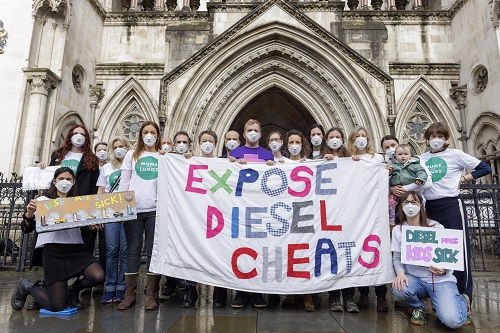Why do we regulate? Had the Government started by asking this question, as it attempts to undertake the biggest ever overhaul of this country’s regulations, we might not be in the mess we now find ourselves in.
Opinion
Knowing the price of something does not tell you its value
The question appears quite simple. Surely, we regulate to protect consumers from harm, to give producers a fair and level playing field, or to stop our ideas and other things we value, like nature, from being stolen, spoiled, or squandered. And, crucially, we want to make sure that people are safe and do not become ill or injured through work.
 Mike Robinson FCA, chief executive, British Safety Council: "We can but hope that the Government comes to its senses and realises the ‘interests of the UK’ are a bit more complex than a zero sum game."
Mike Robinson FCA, chief executive, British Safety Council: "We can but hope that the Government comes to its senses and realises the ‘interests of the UK’ are a bit more complex than a zero sum game."
So, what’s all the fuss about?
Well, of course, one person’s ‘protection’ is another’s ‘cost’, and regulations must be enforced, which isn’t always to everyone’s liking. When we regulate, we often must weigh up different interests or groups: producers versus consumers; employers versus employees; national versus international.
How do we quantify the ‘value’ of safety? We can count lives lost each year, or injuries, illness, and absences at work. But how can we know what didn’t happen? And how to weigh up how much we spend versus how much we gain?
Isn’t this ultimately why we regulate, and why we have independent regulators to oversee, adjudicate and enforce the rules?
As the Retained EU Law (REUL) Bill, tellingly dubbed the Brexit ‘freedom’ Bill, makes its way through Parliament and is now in the House of Lords, it’s fast becoming clear the Government didn’t ask itself ‘why’? Indeed, it seems that REUL is still an ‘enabling’ Bill desperately in search of something to ‘enable’.
Peers have been at pains to extract detail from Ministers about what exactly they plan to do with the now 4,700 EU laws on the Government’s dashboard. Even more importantly, how they plan to decide whether to keep, change or wipe them from our statute book.
Which is why Ministers quickly ran into difficulty when asked what is meant by a regulatory ‘burden’ in the Bill. They also created more confusion by introducing the idea that what they intend to measure is the ‘totality’ of burdens across all retained EU laws, and it is this which must not be increased by the process. Which surely makes it all the more important to know what they are measuring.
Let’s take one example – seatbelts. Our founder, James Tye, campaigned for over 20 years for drivers and passengers to wear a seatbelt, which led to it being made the law in the UK to wear one, in 1983.
As recently as 2006, seat belts adapted for children were made mandatory across Europe. But when the Department for Transport was asked how the UK’s seatbelt law would be affected by the REUL Bill, it said it was ‘committed to upholding’ the law but did not spell out how.
Studies showed that use of special child restraint systems led to a 28 per cent reduction in risk of death for young children from a crash, compared with normal seat belts.
Are we really going to have to wait for Ministers to act before we know whether these will still be required after 31 December? And how will Ministers weigh up the value of this EU-derived law over others?
How about the Work at Height Regulations. We know they save at least 30 lives a year, do we lose those if others on asbestos could prevent many thousands more?
Or will the Government’s assessment of the ‘totality’ of the regulatory burden mean that, in fact, only regulations which ‘benefit’ the economy will be kept while others protecting workers and consumers’ rights must be sacrificed?
With questions like this hanging in the air, is it any surprise that so many people feel confused and in the dark? We can but hope that the Government comes to its senses and realises the ‘interests of the UK’ are a bit more complex than a zero sum game.
OPINION

Heat at work: a silent killer
By Halshka Graczyk and Lacye Groening, ILO on 07 April 2025
Workers across the world are increasingly being exposed to excessive heat with serious implications for their safety and health. It is therefore vital that governments, employers and workers’ organisations develop, share and implement practical and low-cost strategies and measures for effectively reducing the risk from heat stress at work.

Making good work the foundation
By Mike Robinson FCA, British Safety Council on 07 April 2025
In 2024, for the first time, the UK dropped out of the list of the top 20 happiest countries: according to the World Happiness Index. This year, the UK rests in 23rd place, slightly ahead of the US and behind the Nordic countries, Germany, the UAE and others.

The air we share: why tackling pollution protects us all
By Scott Paul, Mums for Lungs on 04 April 2025
Air pollution is often invisible; its impact is anything but. Whether you’re a parent worried about your child’s lungs, a construction worker breathing exhaust fumes, or a commuter passing through busy streets, polluted air is everyone’s problem.



